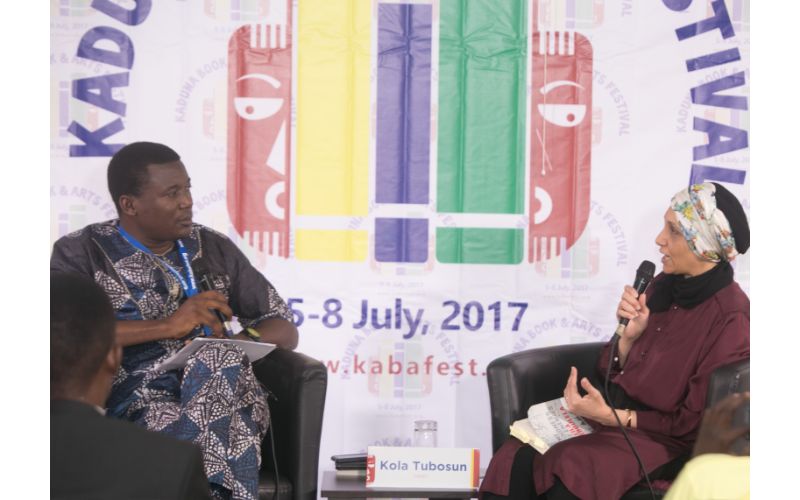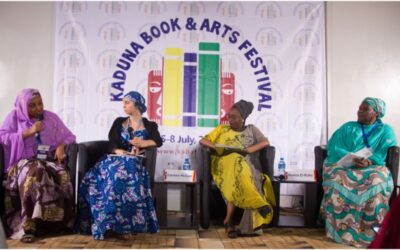Kindness in Uncomfortable Places
The Kindness of Enemies is Leila Aboulela’s fifth work of fiction. In this novel, two stories run parallel, in the present and the past. From the snippet she reads during the booklogue discuss, Leila’s latest novel promises to be absorbing with its exploration of politics and religion. This is not a preachy book but it explores spans of continents and centuries.
In this booklogue, Kola Tubosun interacts with the distinguished author, and first winner of the Caine Prize for African Writing to a delighted Kaduna audience as explored in these excerpts:
What part of Nigeria surprised you the most?
What struck me about Kaduna is it reminded me a great deal about Sudan. I felt quite at home.
Did you always know the form the novel was going to take?
It started with being a historical novel. But then I felt the reader had to engage with the past by knowing what is happening now. So I created a bridge for the modern reader.
On spirituality and writing
I think the Sufi form of worship is the one that has stood the test of time. And this gives it integrity. The Sufi Sheikhs have been quiet and detached and this is a good thing I think.
On Prizes
They are important as they bring writers to attention. They are very effective and very good. But we need a Man African Prize for novels.
On State of Writing on the Continent
I am struggling to catch up now. It is wonderful to have so many writers that are writing.
On the Arab Novel in Africa
Arabian poetry is really old, for a long, long time. The novel is new and came with exposure to Europe in the 20th century. Before that, Arabs distinguished themselves as poets.
Excerpts
As Natasha muses:
No wonder that the founders of Political Islam, those revolutionary elite who turned their backs on tradition and worked towards a perfect society, never took Shamil as a role model. Al-Qaeda was a modern phenomenon, with no patience for Shamil’s traditional spirituality and utter contempt for the choices he made at the end of his career.
Natasha also had a fraught, achingly close relationship with her mother, who has died: “She had yellow shoulder-length hair, but near her neck the hair was darker. And her eyebrows too, which she plucked diligently, were darker. My own hair was different — it was like my father’s even though I was a girl and it should have been like hers; instead it was a mistake, a bush to touch and in photographs, a cloud. Like other white mothers with black daughters, my mother had no clue how to deal with it. It left her bewildered and helpless, it made her feel incompetent.”
Written By Sada Malumfashi

